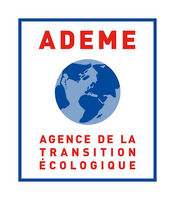Search eceee proceedings
Scaling the energy transition through effective inter-organisational knowledge sharing: a practical framework for intermediary actors
Panel: 3. Policy, finance and governance
Author:
Helena Lindquist, Lightswitch, Sweden
Abstract
The energy transition requires large-scale system change for which we have no blueprint. Nobody has all the required knowledge to navigate this emerging new landscape. Effective knowledge sharing (KS), horizontally within and between sectors, and vertically between societal levels, is therefore of critical importance to accelerate development. The exponential proliferation of KS initiatives in the energy sector seen in recent years is encouraging and indicates a great willingness by many stakeholders to cooperate to scale energy solutions.
Yet, given the urgency of the energy transition and the great appetite for KS, it is remarkable how little attention – by organisers and participants alike – is paid to key KS mechanisms and preconditions that must be in place for it to be truly impactful. Credible theories of change describing how particular KS initiatives lead to actual scaling of solutions are rare. Instead, many seem to rely on “spontaneous scaling by magic” through one-off events on “hot topics”. Scaling is arguably about learning and customisation of ideas and solutions to fit the specific needs of stakeholders in new contexts. With sufficient knowledge of key KS mechanisms, along with practical skills and tools, intermediary actors can play a key role as catalysts for scaling the energy transition – through initiating, designing, and facilitating inter-organisational KS.
There are several interrelated factors to consider when planning impactful multi-stakeholder KS processes; here formulated as questions for intermediaries to seek answers to, in dialogue with prospective KS partners.
WHY: The purpose, vision and concrete objectives constitute the guiding stars for the KS process, and these should be clear to everyone involved. KS is a collective endeavour and development goals should be formulated both for the whole group, as well as for each participating organisation.
WHERE: Any KS process takes place in a specific context, with preconditions (cultural, political, etc.) influencing both the intermediary’s and the participants’ motivations to engage, as well as the possible impact that can result from the process.
WHAT: This question concerns the subject matter in focus for the KS process, the scope of which can pose challenging trade-offs between the need to solve detailed problems (depth) and the quest for developing a holistic understanding of how different factors interrelate at system-level (breadth).
WHO: The participants’ development needs should always be the cornerstone of any KS initiative, but intermediaries also need to consider which stakeholders have what knowledge to share, i.e., understanding the supply and demand of knowledge.
In essence, intermediaries need to solve the puzzle of “who should talk to whom about what and why?”. Some parameters may already be fixed, e.g., an existing network of practitioners that want to share experiences, or the intermediary itself wanting to address a concrete sector challenge by means of interdisciplinary KS and co-production of new ideas.
When all the above-mentioned questions have been considered – and calibrated by contextual preconditions and constraints (e.g., resources) – a suitable KS process can be designed, essentially providing a well-grounded answer to the question of HOW knowledge can be shared effectively to meet concrete development needs. The process design should provide a logical structure and tools to help participants explore the chosen focus area systematically. Since KS is effectively a social process of joint sense-making and learning, it is equally important to create favourable conditions for relationships between participants to deepen and flourish, e.g., by promoting an informal atmosphere characterised by high levels of trust.
This extended abstract suggests a new practical framework and tools for intermediary actors to enable effective interorganizational KS as a vehicle to scale the energy transition.
Downloads
Download this presentation as pdf: 3-035-22_Lindquist-pres.pdf
Panels of
1. Dynamics of consumption: less is more?
2. Efficiency and beyond: innovative energy demand policies
3. Policy, finance and governance
4. Monitoring and evaluation for a wise, just and inclusive transition
5. Towards sustainable and resilient communities
6. Energy-efficient and low-carbon mobility for all
7. Policies and programmes for better buildings
8. Innovations in products, systems and building technologies



























